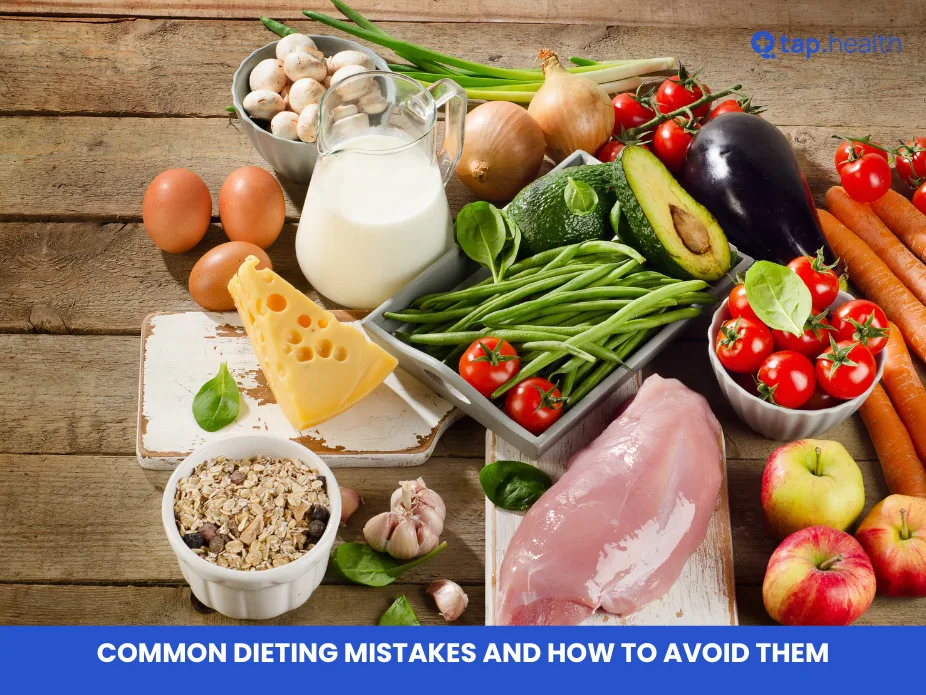Relying on extreme calorie deficits is a frequent error in weight loss efforts. People often slash calories drastically to speed up results, but this triggers metabolic slowdown, nutrient shortages, and muscle loss.
This happens because the body enters starvation mode, conserving energy and hindering fat burn. Instead, create a moderate 10-20% calorie deficit for steady progress without harm.
Why Eliminating Food Groups Hinders Sustainable Dieting
Cutting out entire food groups like carbs or fats leads to imbalances and diet failure. Fad diets promote this for quick losses, but it’s unsustainable.
Focus on balanced portions with whole grains, healthy fats, proteins, fruits, and vegetables. Moderation ensures nutrient variety and long-term adherence.
The Impact of Skipping Meals on Metabolism and Cravings
Skipping meals to reduce intake often causes overeating later, blood sugar swings, and energy dips. Hunger builds, leading to poor choices.
Eat smaller, balanced meals every 3-4 hours, plus healthy snacks like nuts or fruit, to maintain metabolism and control appetite.
Effective Progress Tracking Beyond the Scale
Depending only on weight ignores body composition changes. Daily fluctuations from water or hormones mislead.
Track via measurements, photos, clothing fit, energy, sleep, and mood for a complete view of dieting success.
Broader Health Focus in Weight Loss Journeys
Obsessing over scale numbers neglects fitness, mood, and digestion. Cultural pressure fuels quick-fix mindsets.
Prioritize energy boosts, strength gains, mental clarity, and sleep for motivation beyond weight.
Portion Control with Healthy Foods to Prevent Overeating
Overindulging in calorie-dense healthy items like avocados or granola undermines deficits. Labels trick people into mindless eating.
Measure servings, balance plates, and avoid snacking pitfalls for accurate calorie management.
Role of Sleep in Successful Dieting and Hormone Balance
Inadequate sleep spikes cravings, cortisol, and poor food decisions. Dieters overlook rest amid exercise focus.
Get 7-9 hours nightly to regulate hunger hormones and support recovery.
Real-Life Examples of Dieting Mistakes and Fixes
Jessica skipped lunch, leading to afternoon cravings and dinner binges. Switching to regular balanced meals stabilized her energy and weight loss.
Mark cut to 1,200 calories, causing fatigue and muscle loss. Adding proteins and grains restored strength and steady progress.
Nutritionist Insights on Avoiding Common Diet Pitfalls
Dr. John Berardi stresses sustainable habits over deprivation. Small consistent changes beat extreme restrictions for lifelong results.
Research-Backed Tips for Better Dieting Outcomes
- Moderate deficits prevent metabolic harm.
- Varied whole foods supply nutrients.
- Frequent meals curb hunger.
- Holistic tracking reveals true progress.
- Sleep and stress control aid hormone balance.
FAQ: Common Questions on Dieting Errors
What’s the best way to avoid overeating on a diet?
Use portion control, frequent nutrient-dense meals, and filling foods.
How to prevent extreme calorie cuts?
Opt for gradual reductions with fiber and water.
Is occasional indulgence allowed?
Yes, in moderation within goals.
Handling weight loss plateaus?
Adjust calories or workouts slightly.
How Can TapHealth Help Manage Diabetes Through Smart Dieting?
Dieting mistakes exacerbate diabetes risks via unstable blood sugar. TapHealth offers tools for balanced tracking, avoiding extremes, and sustainable habits to control glucose and weight effectively.on—it’s about making consistent, healthy choices that work for you in the long run.
Reference Link: Precision Nutrition



